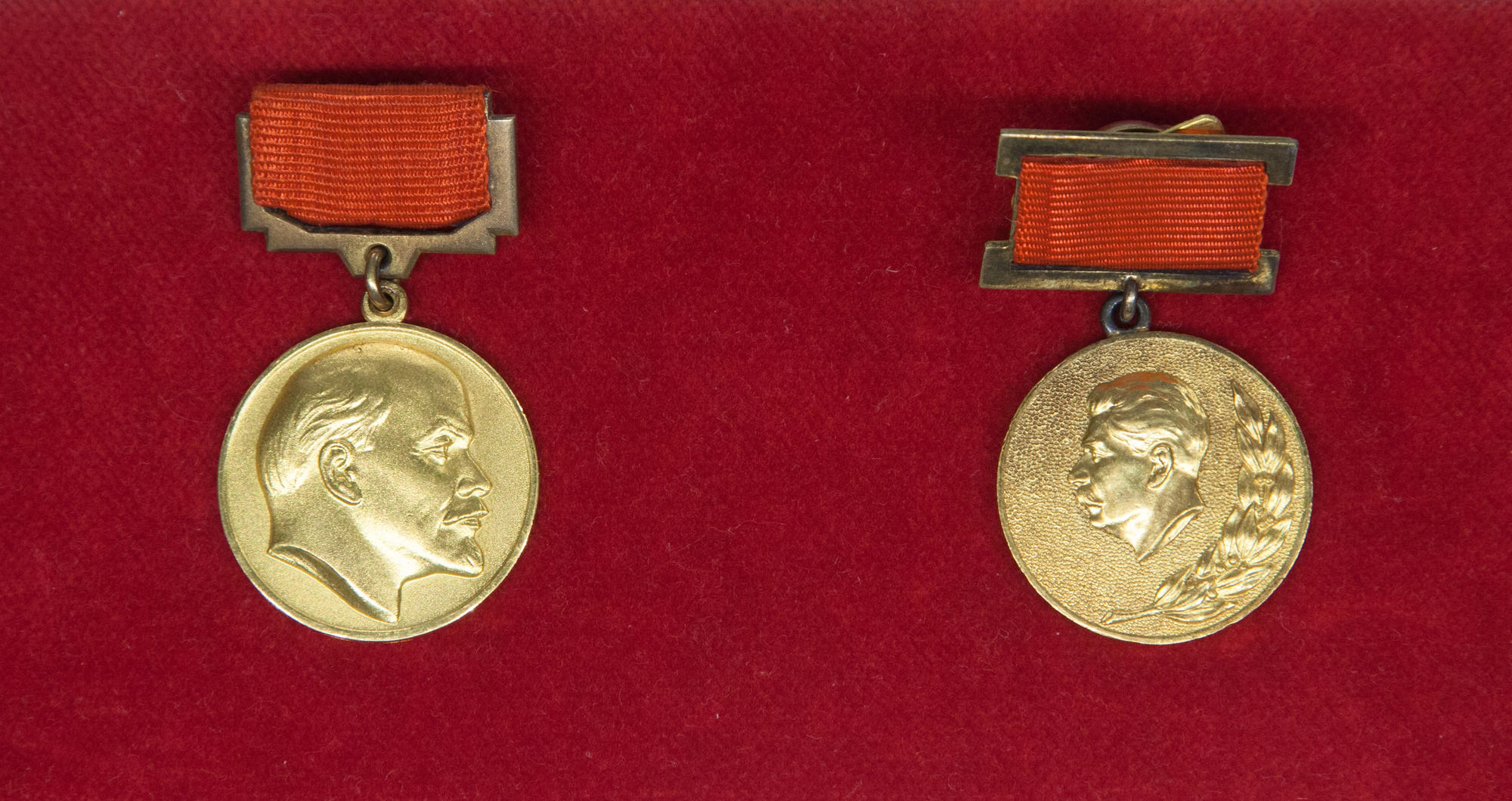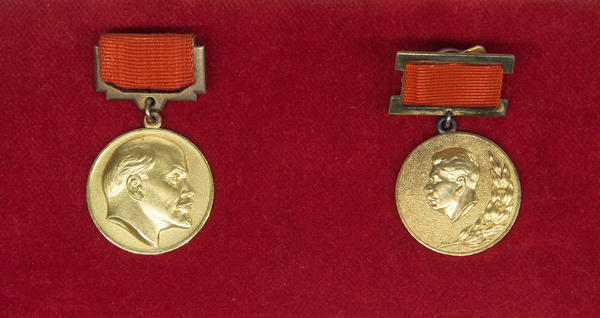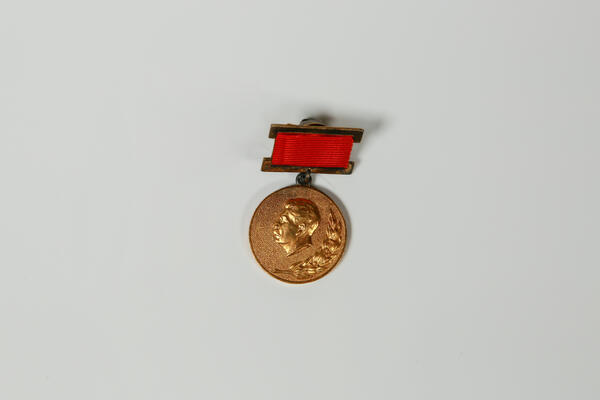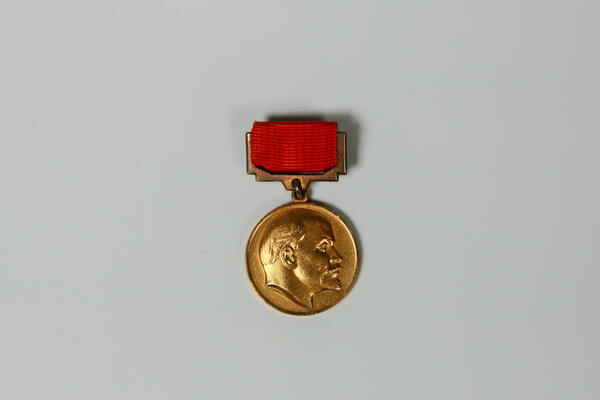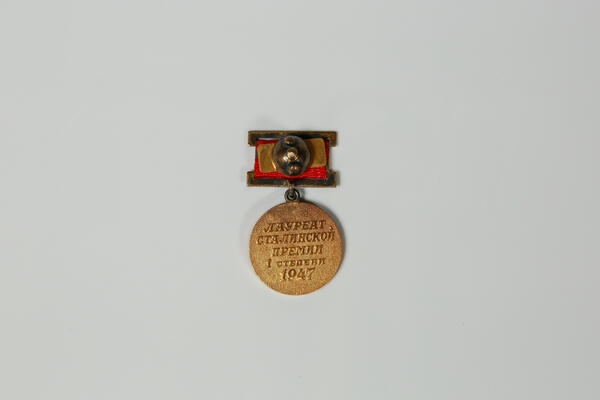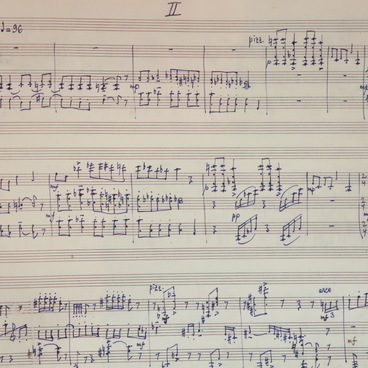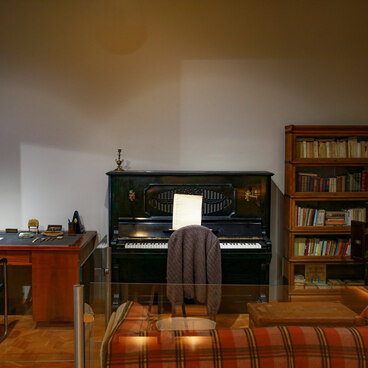During Prokofiev’s lifetime, his music was distinguished with prestigious international and Soviet awards. In 1943, the composer received a second-class Stalin Prize for his Seventh Sonata. Later, in 1946, Prokofiev was awarded three Stalin Prizes: one for the Fifth Symphony and the Eighth Piano Sonata, another for the score to Part I of the movie “Ivan the Terrible”, and the third one for the ballet “Cinderella”. These were all first-class prizes. Prokofiev received another first-class Stalin Prize for his Violin Sonata No. 1 in 1947.
It can be assumed that Prokofiev was awarded such high accolades so often because, for some time, he was the favorite composer of Joseph Stalin. He was the one to be commissioned with the cantata “Zdravitsa” that commemorated Stalin’s 60th birthday in 1939. Stalin Prize was usually awarded once a year, on December 21, the national leader’s birthday. The prize also carried a cash award. Its sum increased between 1940 and 1953, and on average it was 100,000 rubles for first-class, 50,000 rubles for second-class, and 25,000 rubles for third-class awards.
Prokofiev received his last lifetime award after 1948. During his later years, the composer was branded a “formalist” which came to mean an “enemy of the people” who created anti-Soviet music. The term “formalism” was used to describe any artworks which did not fit the arbitrary requirements of Socialist realism or contradicted its principles. Most performers started ignoring Prokofiev’s music, people feared to be friends with him, and his first wife became a political prisoner.
After several years of silence and oblivion, the music of the great genius of the 20th century once again sounded in Soviet concert halls thanks to the incredible efforts of Prokofiev’s true friends, most importantly, the cellist Mstislav Rostropovich.
Prokofiev received his last Stalin Prize for his choral compositions: the suite “Winter Bonfire” and the oratorio “On Guard for Peace” (a Stalin prize second class). After Stalin’s death, the award was renamed after Lenin, and in 1957, the composer was posthumously awarded a Lenin Prize for one of his last major works, the Seventh Symphony.
It can be assumed that Prokofiev was awarded such high accolades so often because, for some time, he was the favorite composer of Joseph Stalin. He was the one to be commissioned with the cantata “Zdravitsa” that commemorated Stalin’s 60th birthday in 1939. Stalin Prize was usually awarded once a year, on December 21, the national leader’s birthday. The prize also carried a cash award. Its sum increased between 1940 and 1953, and on average it was 100,000 rubles for first-class, 50,000 rubles for second-class, and 25,000 rubles for third-class awards.
Prokofiev received his last lifetime award after 1948. During his later years, the composer was branded a “formalist” which came to mean an “enemy of the people” who created anti-Soviet music. The term “formalism” was used to describe any artworks which did not fit the arbitrary requirements of Socialist realism or contradicted its principles. Most performers started ignoring Prokofiev’s music, people feared to be friends with him, and his first wife became a political prisoner.
After several years of silence and oblivion, the music of the great genius of the 20th century once again sounded in Soviet concert halls thanks to the incredible efforts of Prokofiev’s true friends, most importantly, the cellist Mstislav Rostropovich.
Prokofiev received his last Stalin Prize for his choral compositions: the suite “Winter Bonfire” and the oratorio “On Guard for Peace” (a Stalin prize second class). After Stalin’s death, the award was renamed after Lenin, and in 1957, the composer was posthumously awarded a Lenin Prize for one of his last major works, the Seventh Symphony.
